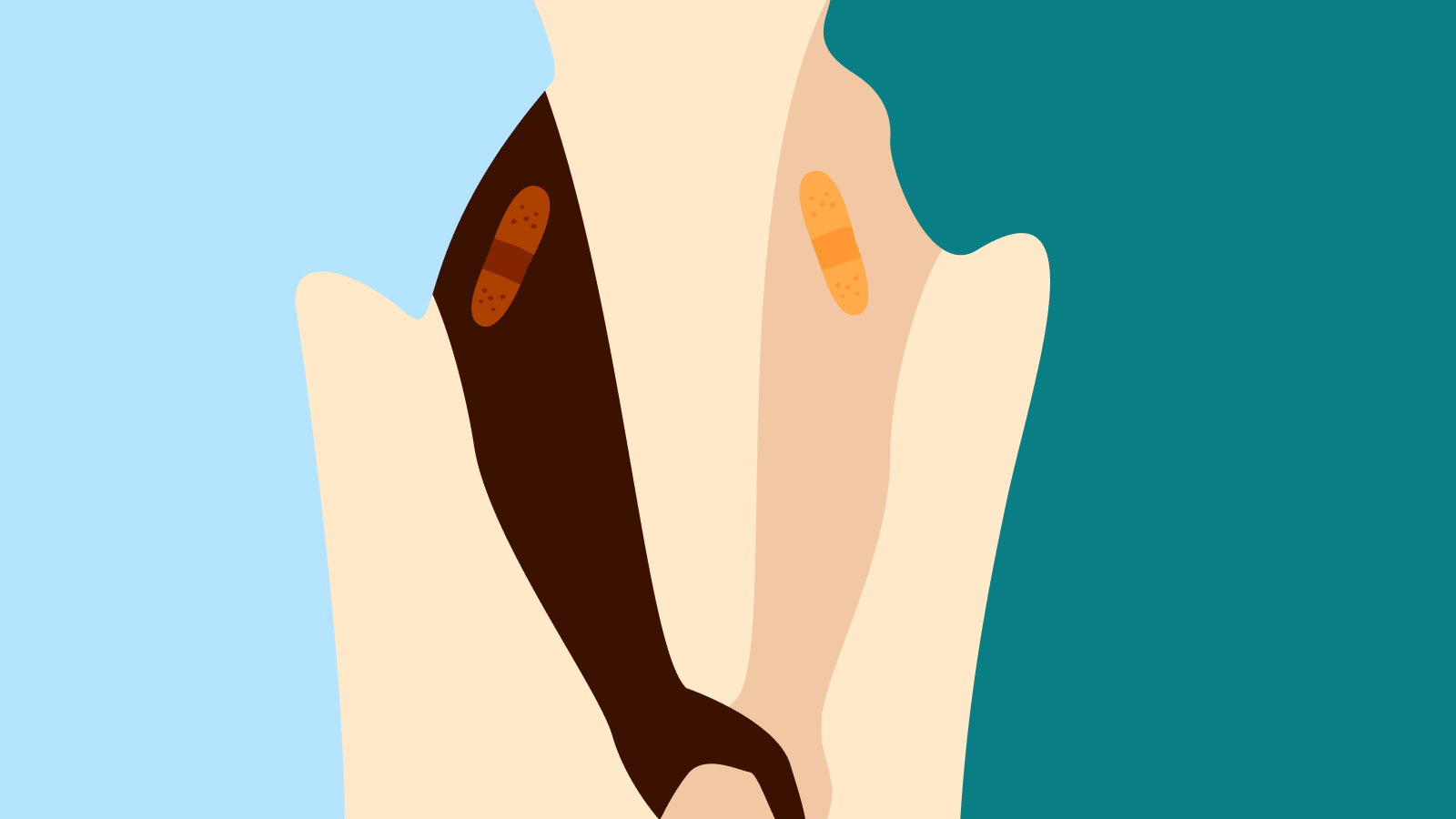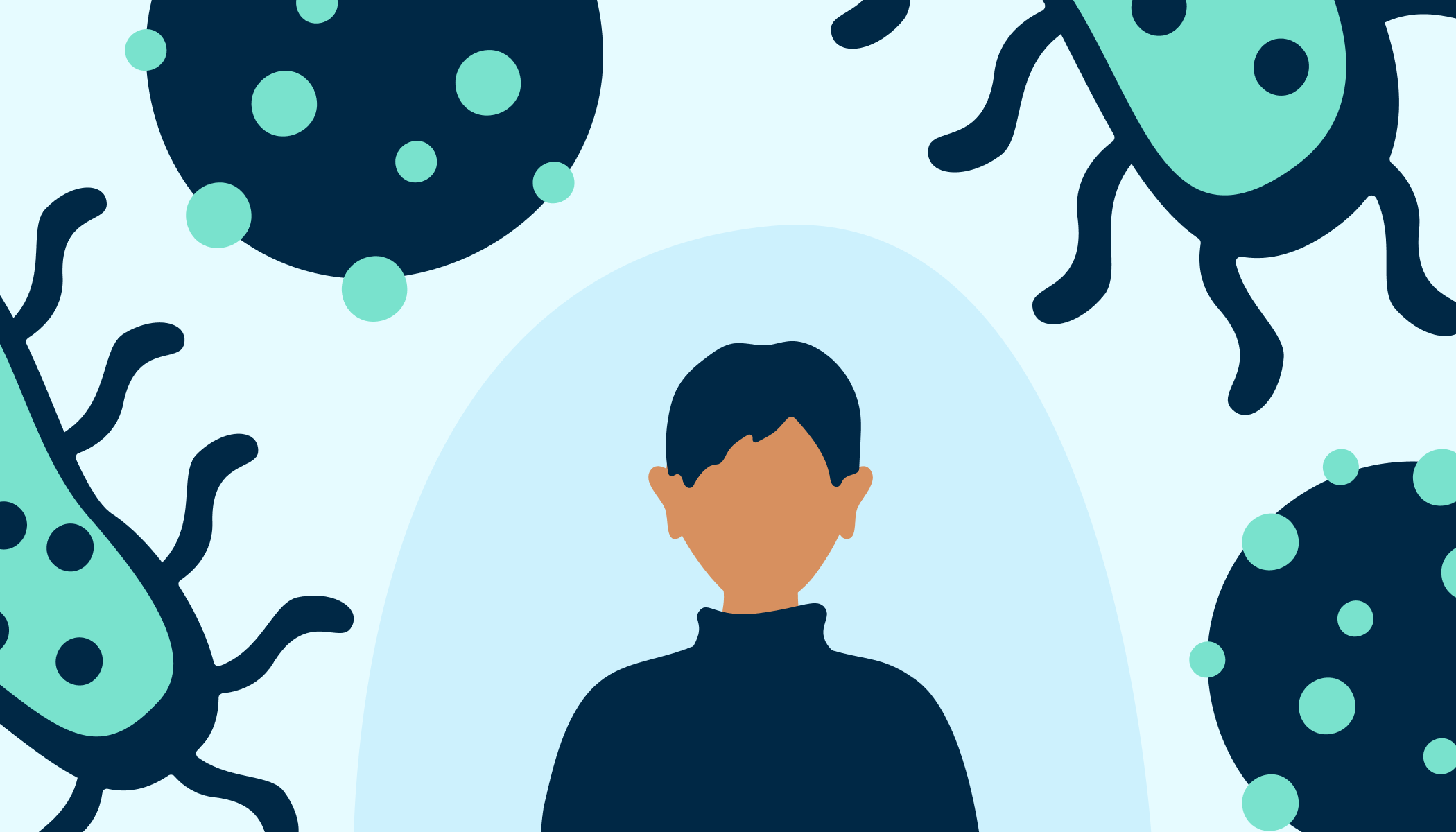Immunisation is the process that protects us against a specific disease through vaccination. According to the World Health Organization, we’ve now developed vaccines for more than 20 life-threatening diseases, helping to prevent 2-3 million deaths every year. Most recently, Covid-19 vaccines have been given to millions of people across Europe, helping to reduce the number of cases dramatically.
‘Vaccines are the single most important development in the history of medical science,’ says Dr Alaeus. ‘They save millions of lives and protect whole communities.’
Here, we answer the biggest questions around vaccinations and immunisation – from how they work to why they matter.
How do vaccines work?
Vaccines work by mimicking a mild form of a natural infection, says Dr Alaeus. They train the immune system to make antibodies, a type of immune cell that is specific to a particular pathogen – usually a virus or a type of bacteria.
It means that when the body encounters the pathogen for real, it knows what to do. And instead of experiencing a harmful or even fatal infection, the person usually has just a mild infection or no infection at all. Doctors call this immunisation, Dr Alaeus explains.
What’s the difference between antibodies and antigens?
Each pathogen has a unique set of antigens on its surface. When the pathogen invades the body, the immune system learns how to make immune cells that will target these antigens. These cells are called antibodies.
The antibodies and antigens fit together like a lock and key. When an antibody encounters the antigen it was designed to fight, it binds to it and destroys the pathogen.
Can a vaccine give me the disease it’s supposed to prevent?
This depends on the type of vaccine. Live vaccines train the immune system by delivering a weakened version of the pathogen. People who have the measles vaccine, for example, may get a small rash and a slight fever. But the symptoms will be much milder than if they had the actual disease.
Other vaccines deliver an inactivated (or killed) version of the pathogen, which doesn’t cause the disease. Examples include the inactivated polio vaccine and some inactivated flu vaccines.
Some Covid-19 vaccines use a new technology called messenger RNA (mRNA). They deliver a genetic code that the body uses to make Covid-19 antibodies. People can’t get Covid-19 from the vaccine.
Why are vaccines important for public health?
‘Immunisation is extremely important for public health,’ says Dr Alaeus.
‘Vaccines have given us the opportunity to save lives and reduce hospitalisations. They have also helped us to protect people against the harmful long-term effects of some infections.’
Before the polio vaccination, for example, people who survived the infection were often left with incurable health issues like paralysis or breathing difficulties.
On a societal level, vaccines reduce the financial and human costs associated with hospitalisation and long-term disabilities or health problems.
They help people carry on with their lives and continue to contribute to their communities, says Dr Alaeus.
What’s herd immunity?
Herd immunity helps prevent the spread of infectious disease. It’s the primary goal of most vaccination programmes.
It happens when the majority of people in a country or a region have some level of immunity to a disease. People may have developed antibodies by fighting the infection naturally or through vaccination.
‘Polio and measles, for example, have almost been eradicated thanks to vaccine-induced herd immunity. Now, we only really see outbreaks when clusters of people decide not to get vaccinated,’ says Dr Alaeus.
What is vaccine resistance and is it increasing?
‘Some viruses go through lots of mutations. Sometimes a new strain can take over from the strain we’ve been building the vaccine against. This means we have to adapt the vaccine to make sure it’s still effective,’ says Dr Alaeus.
While there’s been a lot of coverage in the media around vaccine resistance during recent months, Dr Alaeus explains that it’s not a common occurrence.
‘Most viruses and bacterium are very stable. However, some respiratory tract infections, such as influenza and to some extent Covid-19, can adapt to escape immunity.
‘But scientists are prepared for this. We have new techniques, and manufacturers and researchers can adapt the vaccines to the dominant viral strain,’ she adds.
Why is childhood immunisation so important, even in healthy children?
Immunisation is a form of preventive healthcare. Rather than curing a disease, it helps avoid the potentially fatal or long-term impact of infectious disease, says Dr Alaeus.
This is especially important in low- and middle-income countries, where factors such as poor nutrition can leave children particularly susceptible.
Crucially, childhood immunisation also protects communities. ‘Even if an unvaccinated child doesn’t greatly suffer from an infection, they can easily transmit it to more vulnerable members of society: their grandparents or those with weakened immune systems.’
What about travel vaccinations? Are they important and are they worth having?
Each country’s vaccination schedule is designed to protect its population from the diseases they’re most likely to encounter at home.
But when travellers go abroad, they can lack the antibodies they need to fight off infections they may be exposed to. What’s more, they may also bring serious diseases home to their family, friends and communities.
That’s why most governments advise people to get vaccinated before going to certain countries. Some countries even require proof of vaccination against diseases such as polio or yellow fever before allowing tourists in.
Taking the recommended vaccines before travelling is the safest way to protect yourself, your family and your community, Dr Alaeus concludes.
For more information on the Covid-19 vaccine rollout in your area, see the national vaccination programme in your country. Visit our Covid-19 content hub for more trusted information.
Your immunisation glossary:
Vaccine: A type of medicine that stimulates a person’s immune system to produce immunity to a specific disease, protecting the person from that disease. Vaccines are usually administered through needle injections. Vaccination: The act of introducing a vaccine into the body to produce immunity to a specific disease. Immunisation: The process by which a person becomes protected against a disease through vaccination. Immunity: Protection from an infectious disease. If you’re immune to a disease, you can be exposed to it without becoming infected. Pathogen: Organisms like bacteria, viruses and parasites that cause disease in human beings. Antigen: Foreign substances, like bacteria or viruses, that are capable of causing disease. The presence of antigens in the body triggers an immune response and usually the production of antibodies. Antibody: A protein found in the blood that’s produced in response to foreign bacteria or viruses invading the body. Antibodies protect the body from disease by binding to these organisms and destroying them.
This article has been medically approved by Dr Anette Alaeus, infectious diseases specialist at Livi.


